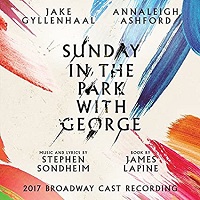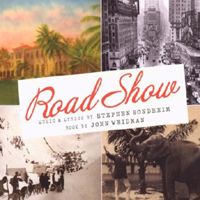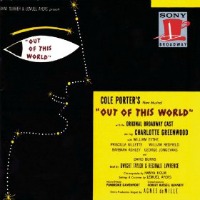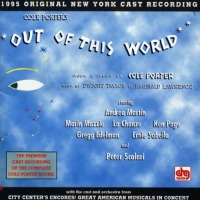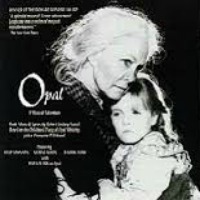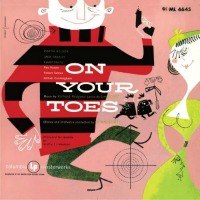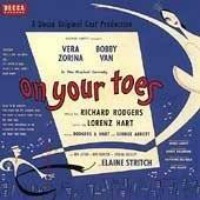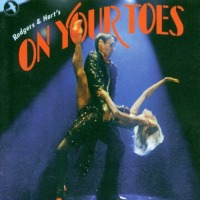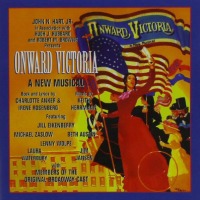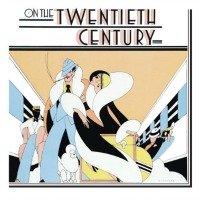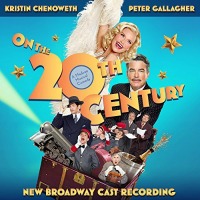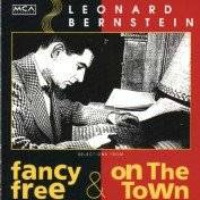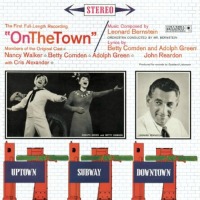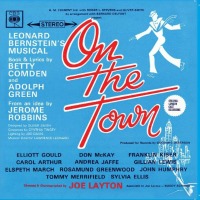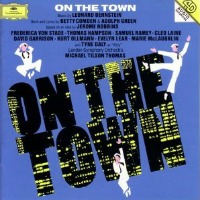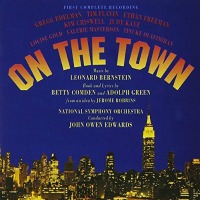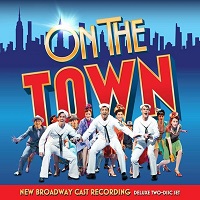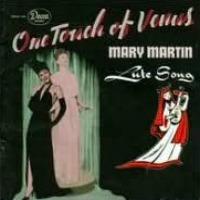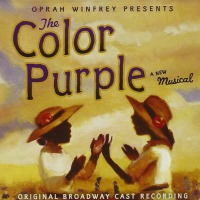 Original Broadway Cast, 2005 (Angel)
Original Broadway Cast, 2005 (Angel)  (3 / 5) Based on the Pulitzer Prize winning novel by Alice Walker, The Color Purple is a work with a lot of heart that was sadly compromised in its original Broadway production by the attempt to present it as a grand, epic musical. Though all of the songwriters are well established in the pop and R&B world, this was the first musical theater score by Brenda Russell, Allee Willis, and Stephen Bray. For the most part, their efforts are worthy. The lyrics are smart and clean, but occasionally heavy handed when leaning towards the poetic. The music, however, is consistently strong, and provides various flavors of jazz, gospel, and soul. LaChanze was given the daunting task of playing Celie, a poor woman who goes through a series of devastating life events, starting the musical at the age of 14 and ending well into her 50s. Acting-wise, the star is up for the task; she wears her heart on her sleeve, and has done the work to specify for the listener what age Celie is at any given moment. However, LaChanze is not always equal to the vocal demands of the score; she’s at her best in the quieter moments (“Our Prayer”), but her two biggest numbers (“What About Love” and “I’m Here”) don’t pack the wallop that they should, because she doesn’t sound completely comfortable from a vocal standpoint. The rest of the cast — including Felicia P. Fields, Elisabeth Withers-Mendes, Renée Elise Goldsberry, and Brandon Victor Dixon — are all vocally gifted, but they perform rather broadly. Too often in this recording, characters come across as caricatures of their literary counterparts, undermining their contribution to Walker’s powerful story. Also, in a rare misstep for Jonathan Tunick, the orchestrations are often busy, seeming to have taken too big a cue from Quincy Jones’s sweeping compositions for the film. This is not a bad score or even a bad recording, but when it’s over, you may be smiling with appreciation rather than wiping away a tear. — Matt Koplik
(3 / 5) Based on the Pulitzer Prize winning novel by Alice Walker, The Color Purple is a work with a lot of heart that was sadly compromised in its original Broadway production by the attempt to present it as a grand, epic musical. Though all of the songwriters are well established in the pop and R&B world, this was the first musical theater score by Brenda Russell, Allee Willis, and Stephen Bray. For the most part, their efforts are worthy. The lyrics are smart and clean, but occasionally heavy handed when leaning towards the poetic. The music, however, is consistently strong, and provides various flavors of jazz, gospel, and soul. LaChanze was given the daunting task of playing Celie, a poor woman who goes through a series of devastating life events, starting the musical at the age of 14 and ending well into her 50s. Acting-wise, the star is up for the task; she wears her heart on her sleeve, and has done the work to specify for the listener what age Celie is at any given moment. However, LaChanze is not always equal to the vocal demands of the score; she’s at her best in the quieter moments (“Our Prayer”), but her two biggest numbers (“What About Love” and “I’m Here”) don’t pack the wallop that they should, because she doesn’t sound completely comfortable from a vocal standpoint. The rest of the cast — including Felicia P. Fields, Elisabeth Withers-Mendes, Renée Elise Goldsberry, and Brandon Victor Dixon — are all vocally gifted, but they perform rather broadly. Too often in this recording, characters come across as caricatures of their literary counterparts, undermining their contribution to Walker’s powerful story. Also, in a rare misstep for Jonathan Tunick, the orchestrations are often busy, seeming to have taken too big a cue from Quincy Jones’s sweeping compositions for the film. This is not a bad score or even a bad recording, but when it’s over, you may be smiling with appreciation rather than wiping away a tear. — Matt KoplikBroadway Cast, 20015 (Broadway Records)  (5 / 5) Well, this is different. In bringing The Color Purple back to Broadway in a stripped down, bare-essentials production, director John Doyle — a master of simplicity — shed a whole new light on the musical and exposed all of its hidden qualities. In terms of the actual material, there’s not much difference between this revival and what was presented 10 years previously; but the approach is vastly different, and that’s why the production and the recording are a revelation. The cast — including TV star Danielle Brooks and Oscar winner Jennifer Hudson, both making their Broadway debuts — finds the humanity that make these characters resonate so deeply. Their powerful acting is reflected in their singing voices, as they attack the score with a ferocity rarely heard on Broadway. While everyone in the cast is stellar, British newcomer Cynthia Erivo is the major find here. Erivo’s Celie may experience brutality and devastation, but she is never a victim. She has strength, humor, and grit; her unstoppable voice can whisper with hurt or soar in triumph, making the 11 o’clock number “I’m Here” the tour de force it was meant to be. Special attention should also be given to the orchestrations of Joseph Joubert, who has removed the fussiness of Jonathan Tunick’s originals and instead has made the orchestra function as a support system (albeit one with great color and versatility), so that the characters are truly front and center. It’s rare for a revival cast recording to be preferable to the original, especially when the revival is significantly smaller in size. But sometimes, with a dynamic cast, a smart director, and a gifted orchestrator, miracles happen. — M.K
(5 / 5) Well, this is different. In bringing The Color Purple back to Broadway in a stripped down, bare-essentials production, director John Doyle — a master of simplicity — shed a whole new light on the musical and exposed all of its hidden qualities. In terms of the actual material, there’s not much difference between this revival and what was presented 10 years previously; but the approach is vastly different, and that’s why the production and the recording are a revelation. The cast — including TV star Danielle Brooks and Oscar winner Jennifer Hudson, both making their Broadway debuts — finds the humanity that make these characters resonate so deeply. Their powerful acting is reflected in their singing voices, as they attack the score with a ferocity rarely heard on Broadway. While everyone in the cast is stellar, British newcomer Cynthia Erivo is the major find here. Erivo’s Celie may experience brutality and devastation, but she is never a victim. She has strength, humor, and grit; her unstoppable voice can whisper with hurt or soar in triumph, making the 11 o’clock number “I’m Here” the tour de force it was meant to be. Special attention should also be given to the orchestrations of Joseph Joubert, who has removed the fussiness of Jonathan Tunick’s originals and instead has made the orchestra function as a support system (albeit one with great color and versatility), so that the characters are truly front and center. It’s rare for a revival cast recording to be preferable to the original, especially when the revival is significantly smaller in size. But sometimes, with a dynamic cast, a smart director, and a gifted orchestrator, miracles happen. — M.K
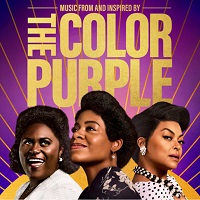 Film Soundtrack, 2023 (WaterTower Music)
Film Soundtrack, 2023 (WaterTower Music)  (2 / 5) News of a movie adaptation of the stage musical version of The Color Purple was met with both cautious optimism and tempered anger. Devoted fans of Spielberg’s original film were confused by what they felt was an unnecessary remake, but after the revelation of the 2016 Broadway revival of the musical, theater fans were eager to see that material brought to the big screen. Unfortunately, more than half of the Broadway score was cut for the movie. Drastic changes to the scores of stage musicals for screen adaptations are nothing new, but the cuts here make very little sense — and what’s worse, the new songs that have replaced the missing ones are painfully inferior. As for the songs that have been kept from the stage show, they have been given new arrangements that are often listenable but rarely compelling. While the cast is jam packed with talent, many of these fantastic performers are underused. For example, Corey Hawkins is a charming and subtly sexy Harpo, but you’ll wish you could hear him sing “Brown Betty” and “Any Little Thing.” And though Halle Bailey, who starred in the live-action remake of Disney’s The Little Mermaid, makes a welcome movie musical return as Nettie, you long to hear her silky voice in “Our Prayer” and “African Homeland” rather than the forgettable “Keep It Movin’.” As Celie, Fantasia Barrino communicates the appropriate amount of pain and resilience, but too much material has been cut for her to make the lasting impression she did when she played this role as a replacement in the original Broadway production of the musical. That said, she does land “I’m Here” well. Danielle Brooks reprises her Broadway revival role of Sofia, and Oscar nominee Taraji P Henson is on hand as Shug Avery. Both bring to their tracks the heat and precision that’s often missing from the rest of this album; Brooks’ “Hell No” might be the best recorded version of that song to date, and Henson’s “Push Da Button” has enough sexual steam to fog up your speakers. When they take command, you get a sense of how great this movie and its soundtrack recording could have been. — M.K.
(2 / 5) News of a movie adaptation of the stage musical version of The Color Purple was met with both cautious optimism and tempered anger. Devoted fans of Spielberg’s original film were confused by what they felt was an unnecessary remake, but after the revelation of the 2016 Broadway revival of the musical, theater fans were eager to see that material brought to the big screen. Unfortunately, more than half of the Broadway score was cut for the movie. Drastic changes to the scores of stage musicals for screen adaptations are nothing new, but the cuts here make very little sense — and what’s worse, the new songs that have replaced the missing ones are painfully inferior. As for the songs that have been kept from the stage show, they have been given new arrangements that are often listenable but rarely compelling. While the cast is jam packed with talent, many of these fantastic performers are underused. For example, Corey Hawkins is a charming and subtly sexy Harpo, but you’ll wish you could hear him sing “Brown Betty” and “Any Little Thing.” And though Halle Bailey, who starred in the live-action remake of Disney’s The Little Mermaid, makes a welcome movie musical return as Nettie, you long to hear her silky voice in “Our Prayer” and “African Homeland” rather than the forgettable “Keep It Movin’.” As Celie, Fantasia Barrino communicates the appropriate amount of pain and resilience, but too much material has been cut for her to make the lasting impression she did when she played this role as a replacement in the original Broadway production of the musical. That said, she does land “I’m Here” well. Danielle Brooks reprises her Broadway revival role of Sofia, and Oscar nominee Taraji P Henson is on hand as Shug Avery. Both bring to their tracks the heat and precision that’s often missing from the rest of this album; Brooks’ “Hell No” might be the best recorded version of that song to date, and Henson’s “Push Da Button” has enough sexual steam to fog up your speakers. When they take command, you get a sense of how great this movie and its soundtrack recording could have been. — M.K.


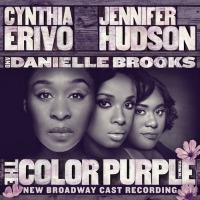
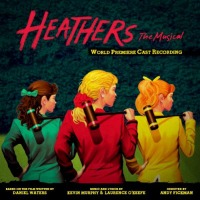
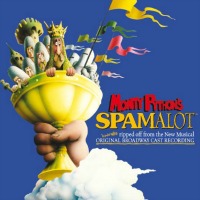
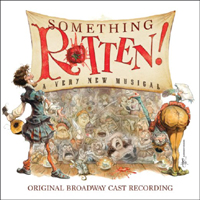

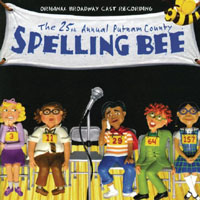
 (4 / 5) This show, about a regional spelling bee with prepubescent contestants, marked the Tony Award winning composer/lyricist William Finn’s return to Broadway after a long absence. For that reason alone, The 25th Annual Putnam County Spelling Bee is worth celebrating. It also happens to be an inventive, warm, and joyful musical. Finn shines best as a writer when his characters are up to his intelligence, and here we have six abnormally smart, strange, prematurely eloquent pre-teens who let their insecurities, jealousies and hormones rage during the competition. It seems evident that Finn enjoyed himself while writing Spelling Bee, as this marks his most playful work since In Trousers. The cast album isn’t given the highest possible rating here only because the score is woven so intricately into Rachel Sheinkin’s excellent libretto (arguably one of the best of its era) that a good deal of it may not impress listeners out of context as much as it does in the theater. One exception is “The I Love You Song,” a beautiful piece in which speller Olive Ostrovksy (played beautifully by Celia Keenan-Bolger) imagines the support and devotion of her parents, neither of whom are present at the bee. The entire cast is definitive, including Deborah S. Craig, Jesse Tyler Ferguson, Dan Fogler, Jose Llana, and Sarah Saltzberg as the other young competitors. In addition to being excellent singers, they are charming, intelligent actors so in tune with their roles that it’s easy to forget they’re all a good decade or two older than the characters. — Matt Koplik
(4 / 5) This show, about a regional spelling bee with prepubescent contestants, marked the Tony Award winning composer/lyricist William Finn’s return to Broadway after a long absence. For that reason alone, The 25th Annual Putnam County Spelling Bee is worth celebrating. It also happens to be an inventive, warm, and joyful musical. Finn shines best as a writer when his characters are up to his intelligence, and here we have six abnormally smart, strange, prematurely eloquent pre-teens who let their insecurities, jealousies and hormones rage during the competition. It seems evident that Finn enjoyed himself while writing Spelling Bee, as this marks his most playful work since In Trousers. The cast album isn’t given the highest possible rating here only because the score is woven so intricately into Rachel Sheinkin’s excellent libretto (arguably one of the best of its era) that a good deal of it may not impress listeners out of context as much as it does in the theater. One exception is “The I Love You Song,” a beautiful piece in which speller Olive Ostrovksy (played beautifully by Celia Keenan-Bolger) imagines the support and devotion of her parents, neither of whom are present at the bee. The entire cast is definitive, including Deborah S. Craig, Jesse Tyler Ferguson, Dan Fogler, Jose Llana, and Sarah Saltzberg as the other young competitors. In addition to being excellent singers, they are charming, intelligent actors so in tune with their roles that it’s easy to forget they’re all a good decade or two older than the characters. — Matt Koplik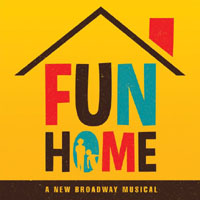
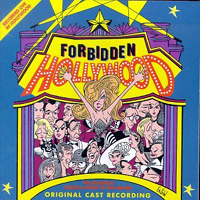
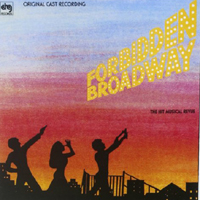
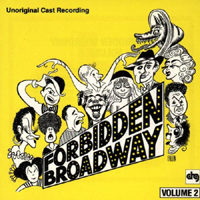
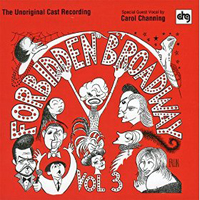

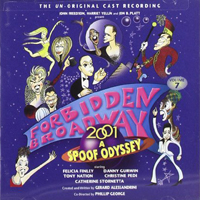
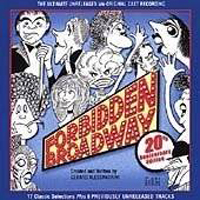
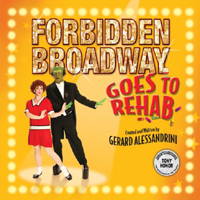

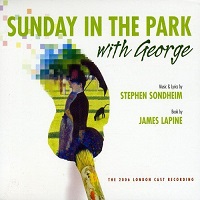
 (1 / 5) This recording showcases compelling, committed vocal performances by Daniel Evans and Jenna Russell as George and Dot/Marie, though their Brit accents — his pretty much RP, hers more North London — may take some getting used to. But for many listeners, the extreme diminution of the size of the orchestra here as compared to the forces heard on the original Broadway cast album will be reason enough to exclude it from their collections. The original justification for the pathetically meager instrumentation was that this production was staged at the intimate Menier Chocolate Factory, but there was no significant increase in the number of musicians for the cast album (as often happens) or when the show transferred to Broadway under the auspices of the Roundabout Theatre Company, which presented it in the large Studio 54 venue. On the recording, this is a greater liability in some songs (e.g., “Sunday”) than others, but the tiny orchestra — or, rather, small combo or chamber ensemble — is a major disappointment throughout. The production itself was enjoyable for the leads and for a wonderfully creative use of projections to display Georges Seurat’s art, but minus the visuals, the cast album doesn’t really justify its existence. — Michael Portantiere
(1 / 5) This recording showcases compelling, committed vocal performances by Daniel Evans and Jenna Russell as George and Dot/Marie, though their Brit accents — his pretty much RP, hers more North London — may take some getting used to. But for many listeners, the extreme diminution of the size of the orchestra here as compared to the forces heard on the original Broadway cast album will be reason enough to exclude it from their collections. The original justification for the pathetically meager instrumentation was that this production was staged at the intimate Menier Chocolate Factory, but there was no significant increase in the number of musicians for the cast album (as often happens) or when the show transferred to Broadway under the auspices of the Roundabout Theatre Company, which presented it in the large Studio 54 venue. On the recording, this is a greater liability in some songs (e.g., “Sunday”) than others, but the tiny orchestra — or, rather, small combo or chamber ensemble — is a major disappointment throughout. The production itself was enjoyable for the leads and for a wonderfully creative use of projections to display Georges Seurat’s art, but minus the visuals, the cast album doesn’t really justify its existence. — Michael Portantiere